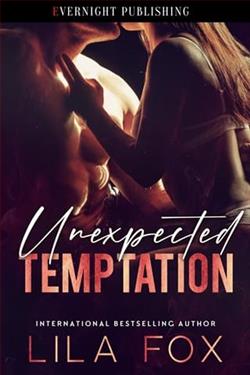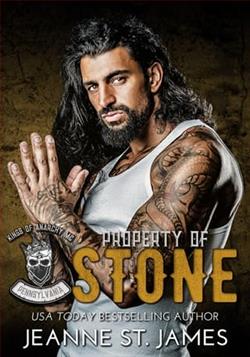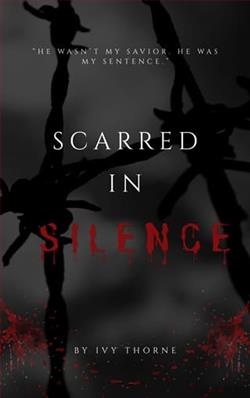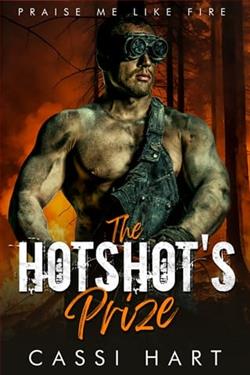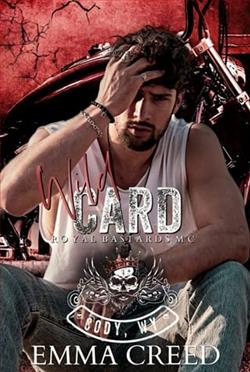Page 7 of Fairy Godmothers Aren't Cheap
“Uh, yeah.” Inwardly, I cringed. I knew he watched who was coming and going from his front window, but seriously. Could he act any more creepy?
His tone became jolly and slightly parental. “Well, don’t party too loud on your own tonight, or I just might show up!”
* * *
Hands stuffedin my jacket pockets against the evening’s chill, I shuddered as I hustled away from Randy and the building. As I passed his red sports car, which was blaring its alarm, I resisted the urge to go back and complain to Randy about the noise. Everstone wasn’t a super great neighbourhood, with all the vacant lots and lack of community pride vibes, but it wasn’t what anyone would call inner city. And it wasn’t so bad that someone would try to steal his cherry red beast every single day—which seemed to be how often its alarm swore a blue streak.
Everstone had potential, but it was a tiny, forgotten neighbourhood close to the downtown, boxed in by the Bow River, the Stampede grounds and Canada Pacific’s main rail line. We were only a few blocks wide and long, and ranged from half-occupied, basically historic (by western Canada standards) buildings to industrial lots. We had one restaurant, one coffee shop and cheap rent. But if the revitalization bug found us, and gave us a good bite, the line of interesting old brick buildings a block from my place would become super trendy and fetch top dollar. But right now they were mostly vacant, sadly overlooking the trashy empty lot across the street. The lot’s sagging chain-link fence was full of holes and had grown thick with blown-in trash. Not to mention the waist-high weeds and the abandoned warehouse sitting on the lot behind.
Nobody wanted to start a trendy business around that.
Usually I sped by, head down, trying not to notice the dumpy bits so close to home. Today, however, I slowed, worried about a group of kids playing in the empty lot. They’d created a slide out of old barrels and bent metal siding panels from the abandoned warehouse, like they were in a third world playground. One of them was going to get hurt. I paused, wondering if I should tell them not to play in there. But where else would they play? On the street? That hardly seemed better.
Before I could decide what to do, a woman came hustling up.
“Get out of there! Right now!” She had her hands on her hips and had her mom tone down pat. I startled, and out of habit, or maybe self-preservation, my spine straightened and my arms dropped to my side as though I was awaiting a command.
The kids’ heads popped up like Felipe’s did when he sensed danger.
“I swear,” the mother muttered, as the three young boys scuttled through the break in the fence like they were being chased.
“We need a park,” I said as she looked at me, head shaking.
“We need to complain to the city about this dangerous monstrosity.” She was already herding her boys up the street toward the apartment building on the corner.
“Yeah,” I agreed.
“Too bad it doesn’t do any good.” She was moving, nudging the children when they moved too slow. “What did I tell you about playing in there?”
“It’s dangerous,” they said in the most dejected voices. It pulled at my heartstrings.
I’d grown up in small towns all over the province, and no matter where we’d landed for Dad’s jobs, or whether I fit into the close-knit communities or not, I could always assume there’d be a safe playground at my disposal. Why should it be any different for these city kids? It wasn’t fair. Not at all.
I began walking again, my mind spinning, wondering how I could help. Maybe there was nothing. Maybe this was just one more aspect of city living that I’d never get used to.
As I got closer to the downtown, the temperature drifted lower, the buildings around me growing taller. This time of year in Canada, you could be breaking out the sunblock or the parka. And tonight we were dipping toward parka weather.
My route to the other end of downtown went past my favourite place in the city, the Museum of Culture. It had been one of my first placements at Temporarily Yours, and I’d been placed with my now-roommate, Josie, who was an inventory specialist. She had since started her own business, but back then we’d worked alongside as she’d trained me on two different inventory systems. With her strategies and efficiency, we’d gotten the massive job of changing the museum’s inventory system over to the new program in less time than had been budgeted. Sadly.
I’d loved poking around in the restricted areas and tagging all the display and storage pieces. Except the mummies. They gave me the shivers whenever I was in the same room with them. The ancient pottery, though? Those pieces made me slow down, inhale a little deeper and savour the warm feelings they exuded. When I looked at them, I got a comfortable feeling of belonging, of fond memories and calm assuredness. It wasn’t a common sensation in my life, and it probably helped that Grecian pottery turned out to be the key to unlocking the untapped relationship between me and my dad. After nearly thirty years, we’d finally found something to talk about. However, he didn’t like to daydream about the person who’d made the items. And he didn’t want to imagine their family routines and home life like I did. I wanted to make up a story about the pieces, and what they’d survived in order to make it to today. Back then, was everyone just trying to survive from day or day, or were there people like me, on the lookout for adventure?
The museum’s large, three-story sandstone and limestone building began to loom up from its spot on the corner. With a bounce in my step, and my original destination temporarily forgotten, I headed toward the wide stone steps that would lead me inside. James was working somewhere in the building tonight, and the only question was: go straight to the ancient pottery, do a deep dive into the new Blackfoot exhibit, or track down James and pretend he wasn’t the highlight of my night.
Tamara asked me once why I didn’t work at the museum, and I guess it was because I didn’t know enough. Or at least, that was how I felt. Sure, I’d beaten the museum’s director at history trivia at their members-only Christmas bash a few months ago. But Richard really should have known those things, such as where Kerameikos got its name—from the Greek word for pottery: keramos. As well as the recommended humidity setting for their paper archives, their mummy collection and their ancient pottery. Basics.
I reached the doors and stopped, face scrunching. I didn’t have my membership card on me, and I’d pleaded one too many times with Glenda at the admission desk to bend the rules and let me in without my physical pass. Usually, if I listened to her woes about her gout, she’d eventually allow me inside. But I think Richard, the museum’s director, must have busted her doing that, as she’d been cracking down on me lately.
Turning, I marched back down the steps. At least I was a bit closer to meeting my stair-climbing goal for the day.
“Char! Hey, Char!”
I turned toward James’s voice and felt my lips turn upward. Spending time on the museum’s inventory for those few weeks had not only allowed Josie and me to become friends, but I’d also become friends with the hunky museum security guard, James, too. It truly had been the best job ever. Even better than the book depository, and that was a pretty sweet gig.
“Hey!”
James jogged down the steps, stopping in front of me. He was about eight inches taller than I was, and delectable in a just-friends sort of way. Because hot guys who worked out regularly—such as James—didn’t go for dorky, curvy girls like me. Not that either of us was looking to cross that line. Our friendship was too important, and I was certain neither of us had lain awake at night wondering how the other person’s lips rated when lined up against our own.
Right.









